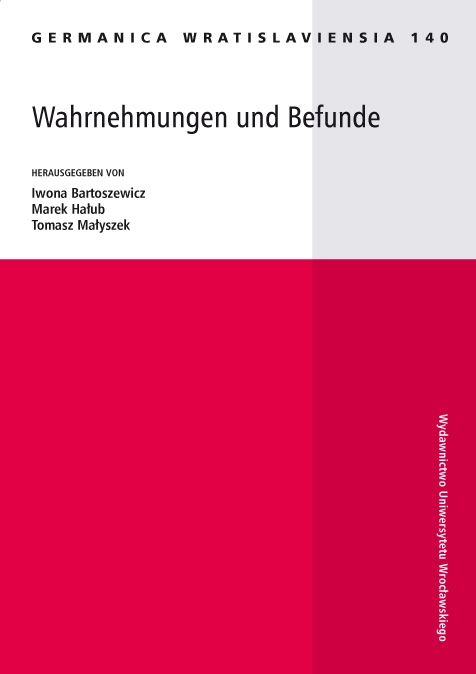

Literaturwissenschaft

Zunächst erscheinen Polen und dessen Kultur fast ohne Bedeutung für Thomas Mann – kein Vergleich etwa mit Russland. Bei näherer Betrachtung erweist sich jedoch, dass die in seinem Werk nicht allzu häufi gen Begegnungen mit Polen einem Muster entsprechen, welches bei seinem verehrten Vorgänger Theodor Fontane voll ausgeprägt und auch in voller Widersprüchlichkeit vorliegt. Von Polen geht eine Gefahr aus, die weniger von seinem Hang zum bewaffneten Aufstand herrührt als von dem meist stillen Einspruch, den es gegen deutsche und insbesondere preußische Moralvorstellungen erhebt – und sie damit auch unterwandert.
Death in Swinemünde. Polish paradoxes in the works of Thomas Mann and Theodor Fontane
At first glance, Polish culture and history seem of little importance in Thomas Mann’s creative imagination. But a closer look reveals the extent to which his relatively rare evocations of Poles and Poland correspond to a pattern which his revered predecessor Theodor Fontane elaborated upon constantly. Poland is dangerous not because of its armed insurrections, but because it raises questions which quietly undermine the foundations of German and particularly Prussian notions of order and power.